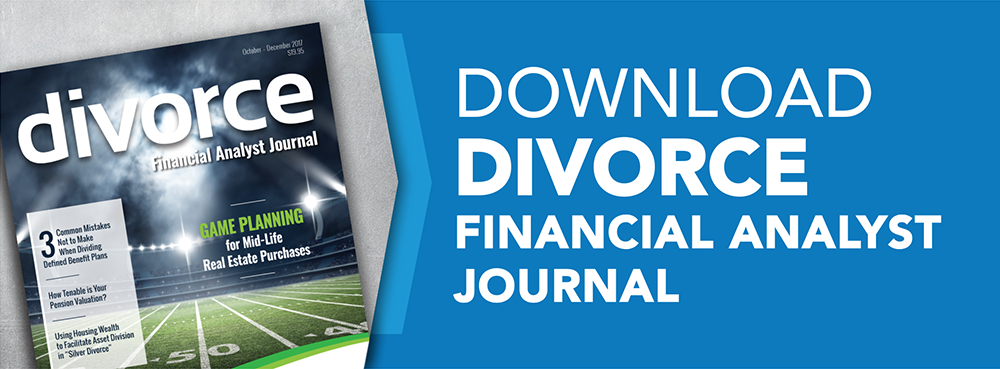What do those letters that follow the names of financial experts mean?
During your divorce, you need sound financial advice to ensure the settlement is fair to both parties; afterwards, you’ll probably need help adjusting to your new circumstances and planning for a secure future. Here’s an introduction to some of the financial professionals you may need.
CPA/CA/CGA: an accountant can give advice regarding financial statements and is often involved in the planning and preparation of income tax filings. A qualified accountant can make judgments regarding the quality and reliability of a company’s books and records – which can be very helpful in divorce cases involving a family-owned business.
CBV: a Chartered Business Valuator has credentials that include managing business accounts. If you need to know how much a business is worth, call a CBV.
CDFA®: a Certified Divorce Financial Analyst® has specialized education, skills, and experience that enables him or her to analyze both the short- and long-term financial impact of different divorce settlements.
CFE: a Certified Fraud Examiner deals with complex financial situations, looking for hidden cash and financial manipulation. Call a CFE if you suspect your ex of foul financial play.
CFP®: a Certified Financial Planner® can help you improve your overall financial health, and help you budget and plan for future goals. If you’ll be receiving a lump-sum spousal support or equalization payment, a CFP can help you invest it according to your goals.
CVA: a Certified Valuation Analyst can place a value on a business.
EA: an Enrolled Agent has been authorized by the IRS to specialize in tax issues in the USA.
PFS: a Personal Financial Specialist is a designation given out by the American Institute of Certified Public Accountants to those who are already CPAs and who have at least three years of experience in dealing with personal finances. A PFS can help you improve your tax situation – and your financial future.

 800.875.1760
800.875.1760







